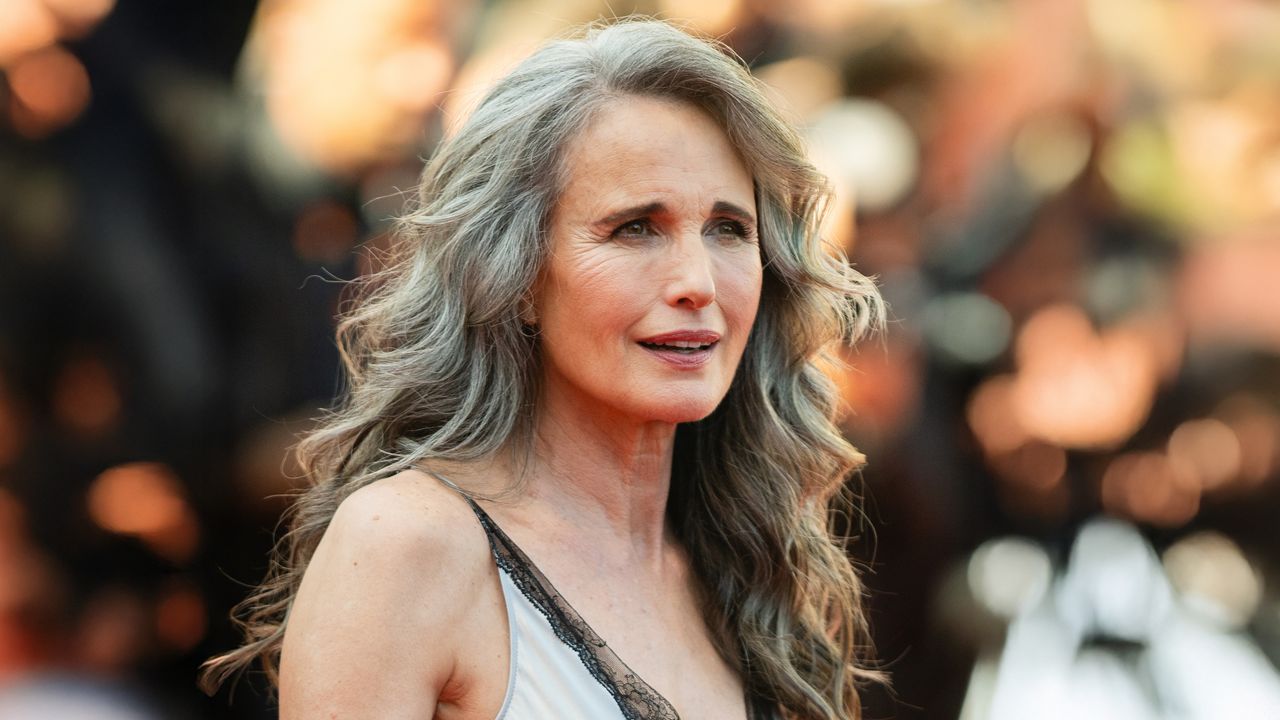Did you all happen to see the photos of Andie MacDowell on the red carpet at the Cannes Film Festival? Though she garnered some snark regarding the style of her gown—or, nightgown, as it was ungenerously, but not inaccurately, described—she looked magnificent in all her softened, old-lady glory. And by softened, I mean literally (and alliteratively) that her bitty belly bulge, her little love handles, her dimpled deltoids were all on display. Granted, she’s in better physical shape than a lot of us at her age, due to her dedication to taking fine care of herself, along with a comfortable financial cushion supporting her efforts. But I believe appearing on a red carpet revealing more or less what a 67-year-old body really looks like is an act of courage, even for someone as gorgeous as MacDowell.
Compare that red carpet photo with one of 62-year-old Demi Moore, another well-observed movie star around MacDowell’s age, and you might begin to wonder what the benefits actually are of trying to maintain a body that manifests the results of plastic surgery, intermittent fasting, and decades of intense workouts. To her credit, Moore has questioned publicly the wisdom of such a lifelong regimen but still seems to relish the sharp, geometric angles of the results. I salute her for continuing to look, in her grandmotherhood, like a superbly trained Marine. But as a Grammie myself, I prefer a softer profile like MacDowell’s, aligning with the emotional softening I’m enjoying as I slip, comfortably, into my eighth decade.
I’m learning to accept, if not love, the softening of age. I never had much of a belly till this year at 74; no matter how many sit-ups I’ve attacked it with, it refuses to retreat. So be it. Oddly, now that I’m many years post-menopausal, the softening of my body makes me feel more sensual, in a way, more leisurely about enjoying my physicality. This may be due to many factors, including increased self-esteem (likely to peak during the 60s and 70s, according to one study), a less critical focus on my body, fewer stressful concerns, and a more relaxed approach to sex. These feelings align with the research—called the happiness U-curve—that happiness is most robust when we’re young, declines in middle-age, and then rises again the older we get, as our ambition and associated stresses become less intense and we might choose to focus on contentment.
If this sounds too good to be true, it’s worth noting that the U-curve relies on the notion that we’re generally healthy and financially equipped enough to enjoy old age, factors that exclude a lot of the elderly around the world. While acknowledging the recent conflict around this research, I’m choosing the sunnier interpretations. It makes sense to me that, in spite of the awareness that as the years accrue, the runway shortens, it is possible to enjoy a sense of peace and poignancy. Or, as MacDowell put it when I spoke to her recently for Allure, “That’s another thing that happens after 60, you have this power to go inward and find things about yourself you want to fix. I want to get rid of the edges; I want to be soft. I don’t want people to ruffle my feathers; I don’t have time for that. I just want to take care of myself. And love other people.”
What she said.
However. Dark clouds approaching!
Much of the external messaging we receive daily—through advertising, social media, movies, and TV—encourages or exhorts us to try to diminish the manifestations of aging, and consequently, the inevitability of our mortality. The wrinkling, the dimpling, the soft bulges and “loose and silky elbows” (as one friend puts it), all are reminders that we are organic, and being organic, temporary. Figuring out how to appreciate those reminders rather than to engage in an ultimately losing battle to eliminate them is one of the more challenging tasks of feeling good about ourselves as we age. Our appearance often feels like our currency in a culture that has traditionally valued women more for the way we look than for our worth in other arenas (like work, family life, intellect, and social values). So it can require a major shift in perspective to accept that we are farther than ever from the unrealistic, unattainable beauty ideals the culture promulgates, and only losing ground. We might choose, finally, to no longer strive for it at all.
Photo: Getty Images
If we’re open to it, there are some people who can help with that adjustment. A friend told me recently about how her young granddaughter, upon seeing her ample breasts uncovered for the first time, exclaimed delightedly, “Oh, Gram! I didn’t know you have those!” as she reached over to pat them gently. “Oh, they’re so fluffy!” she said. Fluffy as a cloud, sailing lower than they were 20 years ago, for sure, and dropping altitude by the day. Still, though, worthy of appreciation in the eyes of someone for whom the softness of an aging body can look a lot like love.
Read more from Valerie Monroe:


